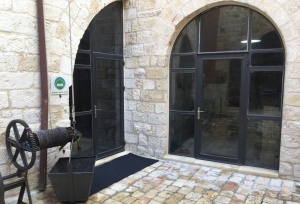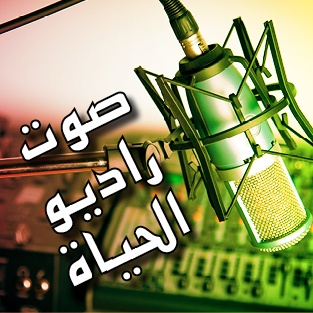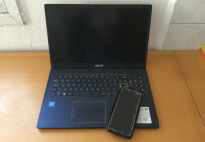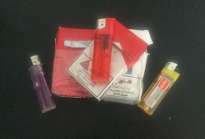
Radio Hayah spoke with Valencia Clemantelli
- What is AVSI?
AVSI, created in 1972, is an Italian non-profit organization recognized as such in 1973 by the Italian Ministry of Foreign Affairs. AVSI carries out development cooperation and humanitarian aid projects throughout the world. We work for a world where the person, aware of his/her value and dignity, is the protagonist of his/her own integral development and that of his/her community, even in crisis and emergency contexts. AVSI implements cooperation projects in various sectors with a preferential focus on education, meaning that the person is accompanied towards self-discovery and recognition that the other person is a resource. Each project is conceived as an instrument to promote this awareness in everyone involved, has in itself a need for communicating and sharing, and creates an impact capable of generating a positive change.
- How many countries are you in around the world?
Actually we are active in 32 countries with more than 200 projects implemented by a net of more than 1700 staff, over 700 partners and with the support of 34 organizations, its founding members.
- You have offices in Jerusalem, what projects do you run here in the Holy Land.
Currently we have 4 active projects:
- Mustaqbaluna (Our Future) which is also our biggest project, focuses on the working inclusion of vulnerable categories, mainly women and people with disabilities, through the promotion and development of income generating activities. We carry out the project in partnership with BASR and YWCA mainly, that help us reach the aforementioned categories as well as span throughout all of the West Bank, from Jenin to Hebron.
- Specialitaly is our second largest project in which we collaborate as a partner. It is focuses on fostering tourism and the related industry in the Bethlehem area. Our contributionis again focused on people with disability, in fact, with the invaluable support of our partner, Lifegate, we are training People with Disabilities to be able to find a job in the touristic sector and connecting them to potential employers.
- Pro.Ed. our newest project, which began in October 2019 is instead supporting the reality of Effetà, the only school for deaf children in the whole West Bank, with material and furniture for the students, but also and more importantly implementing a series of trainings to help them understand the opportunities they have at Bethlehem University as well as preparing them to face the job market. In addition we will implement, in the framework of the project, a series of meetings and collaborations between Effetà students and the Youth Council of Bethlehem to help the first ones understand how they can be active and useful members of their society as well.
- You work a lot with education, Is education the key to keeping people out of poverty?
We believe that education is the real key to the development of an individual and by education we do not only refer to the formal/informal one received in school, but the education is conceived through an holistic approach which views the human being as a hole paying attention to his/her physical, mental, cultural, moral as well as spirit dimension.
Quoting an important message “Education is the most powerful weapon which you can use to change the world”.
For us though the ultimate goal is not the bare acquisition of a new expendable skill and knowledge, instead we are firmly convinced that education is a path in which the beneficiary can discover his or her talents/value, develop them according to his own ability and develop self-confidence, to be then ready to impact the society around him/her.
- Attendance rate in West bank schools ?
The official data are quite outdated, anyhow the level still results to be very low:
Youth Literacy rate (15-24) 98.2%/ National literacy rate 91.1% (World Bank and Bisan Center 2006)
Enrolments in 2011 (PCBS)
- Elementary 14.2%
- Preparatory 37.3 %
- Secondary 21.9%
- Professional diploma 5.0%
- Bachelor and above 12.1 %
Drop Out rate in 2013 2.4% for males/2.5% for females.
6. Is there a lot of poverty in the West Bank and the area you work in.
Indeed, the current political situation and the occupation, especially after the wall has been built, strongly impacts the everyday life of the communities we work with. The opportunities provided by the job market are a few and with most of the land under Israeli control there are no real possibilities for the expansion of economic activities. Even in front of this situation, the strong bonds in Palestinian society often create safety nets that are at least helpful in letting people having trust in their communities.
- Do you help with needs in crisis and emergency?
As an organization we are not specialized in emergencies, as you have understood by our vision we believe far more in development as a long and stable process with the person at the center. Nevertheless, when emergencies occur we do not step back and led a hand towards the communities we support. As an example, we have worked on the educational emergency in the Jordan Valley, rehabilitating schools and providing education and awareness on gender based violence.
- Tell us about your work with the disabled?
First of all, we prefer to talk about “people with disabilities” - putting the person first and the disability as an external particular condition - since we think that the shortcomings they face are not part of their inner being but that of an external environment unable or unready to satisfy their needs as a person. We think that the language is very important to start to think about these members of the society in a different way. This is also part of our work with them and the society as a whole to promote their rights to have the same opportunities to work and live a decent life. Our programs addressing the disability issue, which we implement in partnership with the experts of Bethlehem Arab Society for Rehabilitation, have always a strong component on advocacy and awareness-raising for the PwDs and their families firstly as well as for the society in general, with a focus on the companies that shall become their employers under the framework of our economic empowerment mission. In fact, we try to empower and equip them with tools and resources to face the job market challenges by training them to enter the formal employment or helping them starting up small business. In the framework of an ongoing project we are providing them with trainings centred on business management followed by individual coaching sessions to design business and feasibility plans propaedeutic to receive micro-loans to start their businesses activity. Indeed, for a significant part of them the self-employment is deemed the best solution. In a year and a half we have been able to help more than 80 PwDs start a business of their own.
- Do you set up support projects to get people into work?
All of our projects have a strong component of introduction to the job market. We believe that the natural outcome of our idea of education should be helping people understand their role in the society, something that becomes practical and concrete through a profession. For this reason either Mustaqbaluna, Secialitaly, but also Pro.Ed. have the common goal of opening real career opportunities for our beneficiaries.
- Do you work to promote gender equality?
Gender equality is a cross cutting theme that we always have in our projects. For example, while selecting our beneficiaries we always make sure to have a proper balance between males and females and to collect a set of information based on disaggregated datas. In addition, the prevention of violence against women is at the core of our values and preoccupations, that is why in a past project on the educational emergency in the Jordan Valley we have provided school girls with a proper course on GBV.
- Are there a lot of barriers to break in the West bank ?
I would say that the reality of the West Bank is pretty diversified, in general though, keeping our eyes on our core interest, disability, I can say that the barriers to be broken are many. In particular, the person with special needs is considered as someone to be hidden and unable to be of any value to the society. This happens especially in small rural villages, but it must be noted that things are changing fast and from the Palestinian community itself. In fact, thanks to the invaluable work of local partners like BASR the perception is slowly but steadily changing.
- Are you making a difference?
This is a very hard question, because Palestine is a place where it is very difficult to see real changes compared to others context. A real impact of changes is difficult to estimate although I believe we are making important progresses and at the end of the day working here it only requires a different mindset based on patience and perseverance.
“To do With” is one of the main pillars of AVSI method: I think that having in place valuable and solid partnerships with motivated local CSOs operating in their own community to change their lives, it is itself a way to make the difference.
- Why do you do what you do?
We believe in the values of cooperation and solidarity. In a world where everyone closes doors we firmly believe that humanity is interconnected and we cannot simply turn the other way in front of problems. If we have had the luck of being born in a part of the world where we enjoy more access to education and resources it is our moral duty to share it with others recognizing that we all share the same human experience.
- Prayer for the future
We do hope from the bottom of our heart=that the future will bring new opportunities to the people of Palestine starting from the idea that, if we provide tools to improve the education of young generations, the society successively rebuilts itself through more awareness and strength to be resilient.
 صوت راديو الحياة
صوت راديو الحياة
 الكثير من وسائل الإعلام
الكثير من وسائل الإعلام
 FILMED OVER BETHLEHEM
FILMED OVER BETHLEHEM
 توقف عن التدخين
توقف عن التدخين